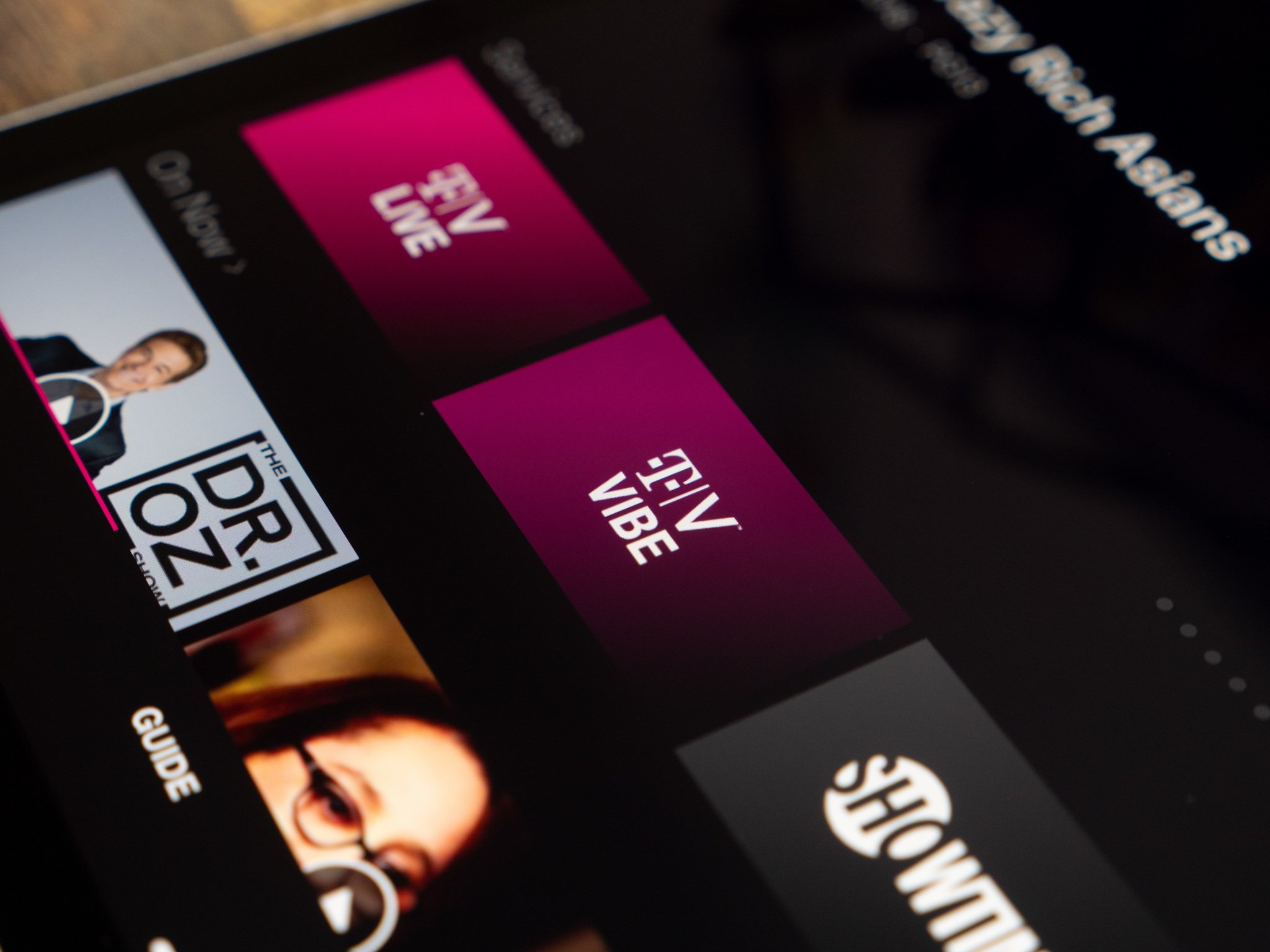A closer look from COO Mike Keyserling.
2020 has been quite a year in just about every possible way, and from a technology/entertainment perspective, one of the most fascinating markets to watch has been that of streaming.
Streaming services aren't anything new this year, but the changes we've seen in this space have been relentless. WarnerMedia and NBC both launched their own apps with HBO Max and Peacock, T-Mobile broke into the live TV space with TVision, and we saw that you could throw nearly $2 billion at one of these services and still shut your doors six months later (RIP Quibi 💀).
Finding success in a constantly growing market like this is no easy task, especially with people staying home more than ever before. According to a study by Staples, 43% of people have signed up for 1-2 additional streaming services since COVID-19 broke out in the U.S. And even with new options constantly entering the ring, a giant like Netflix was still able to add 10 million new subscribers in Q2 2020.
With so much happening right now, you might think that a smaller entrant in the market would be up against all odds. However, the exact opposite has been true for Philo.
Philo first opened its virtual doors back in November 2017 with the promise of offering live TV for just $16/month. By focusing on entertainment/lifestyle channels without major news networks or sports, Philo saw an opportunity to give people the live television experience for considerably less money than the competition. Three years later, that unique position mostly holds true — and it's been working in Philo's favor. The service has seen 3x year-over-year growth for 2020 alone, now touting more than 750,000 paying subscribers and exceeding analyst expectations.
I recently sat down (virtually) with Philo COO, Mike Keyserling, to learn a bit more about Philo, what its future plans include, and to hear about the company's response to the recently-launched T-Mobile TVision.
Philo's rapid growth really caught my attention, especially given that bigger brands like Sling have been seeing their subscriber numbers go down. I asked Mike about Philo's growth and, specifically, if he thinks this year's various stay-at-home orders have had a positive impact on more people discovering and signing up for the service.
Per Mike:
So we already had gotten a good amount of momentum at the start of the year heading into COVID. We were actually growing at a really fast pace at the beginning of this year, and then COVID happened. And everybody was home, live sports were canceled, and we were a low-cost product that didn't have sports. So, you know, I think that all of those things came together to really help increase our growth significantly.
We were 300% year-over-year growth. We've announced 750,000 subs, although we're higher than that now. We've seen a considerable amount of growth. But what I'm excited about is I still really believe we've got a considerable amount of runway. I think we're still in the earlier phases of awareness. And what I think has happened during COVID is it's just so far accelerated people's comfort with streaming.
And even though people are getting more comfortable with streaming, the fact remains that there are a lot of possible services you can sign up for. Personally, my Chromecast has apps for Netflix, Hulu, HBO Max, Disney+, and Prime Video just to name a few. I asked Mike if he thinks we're getting to a point where the market is getting too saturated with different options for people to choose from, and in his eyes, that's not how Philo sees it.
I don't think the future of TV is having twenty log-ins and passwords that you have to remember and having to struggle through where to watch what. We really feel that there's a lot of value in the bundle and there's a lot of value in building a product that people love.
I think at the end of the day that the product itself is going to be so much more important when there are so many options. And so building that customer loyalty and giving them a lot of content and at a good value is what we strive to do. And I think that that's going to help us win in the end.
Mike also commented on Philo's app availability, which is about as good as it gets. You can download and use the Philo app on Android, iOS, Android TV, Fire TV, Roku, Apple TV, and watch on your desktop via Chrome, Edge, Firefox, and Safari.
This is something we've seen the likes of HBO Max, Peacock, Apple TV+, and TVision struggle with. Whether they're lacking support for Roku, Fire TV, or something else, it's something that Mike says a service like Philo can't afford.
There are a lot of interesting dynamics at play where you've got services that launched that maybe aren't on Roku or aren't on various different distribution platforms. It's like a new day of carriage disputes with connected TV providers. I think that as a provider of these products, we have to do our best to be everywhere. Because in the event that there's just so much content, subscribers just aren't going to buy a new device for your content, no matter how good you think it is. It's important to be everywhere and it's important to build a product that people love and also to deliver value.
Going back to the Philo service itself, one of the reasons it stands out so much is its simplicity. Philo's current offering is a single $20/month plan that gives you 63 channels, unlimited cloud DVR, and support for three simultaneous streams with up to 10 profiles per account. You can add EPIX and Starz as optional subscriptions, but the core $20/month plan is all there is. Compared to something like Sling TV or what T-Mobile's doing with TVision, it's a much different approach.
Some people might see that clear-cut strategy as too limiting or not customizable enough, but Mike says it's been at the heart of Philo's success over the past three years.
Simplicity has been key to our success. I think there is a really easy way to explain to subscribers what we are: It's $20, you get a ton of content, you're getting a lot of features, and I think that that has definitely worked to our benefit.
I think you'll see us continue to add packages [like EPIX and Starz]. What we hear from our subscribers is they really love Philo and that they would love to get more content through Philo. Of course, we would love to make that happen for them, so if there are additional channels that we can bring either into the base package or if there are additional tiers that we could offer, I think you'll see us continue to do that in the future. But we will lean heavy when we're marketing Philo like the simplicity of what you're getting for $20. And then, hey, if you want to add on these other bundles, whether it be a low-cost movie bundle or something like that, we'll happily provide that to you.
I've mentioned TVision a couple of times throughout this article, and there's a good reason for that. T-Mobile's unveiling of its streaming service is actually what prompted this interview, seeing as how the T-Vision Vibe plan is very similar to Philo's: $10/month for over 30 channels focused on lifestyle/entertainment with no sports or news.
T-Mobile is obviously a much bigger company than Philo, but even given its larger size and lower monthly price, Mike is confident in Philo's ability to go toe-to-toe with T-Mobile.
There have been a couple of large providers that have come in the space that have tried to offer a skinny bundle. AT&T did it with their watchTV product that was almost like an identical content lineup channel for channel. They had a lower price and they've since sort of abandoned that. From our perspective, I guess you could say imitation is the best form of flattery. We've long felt that there is a market for people that don't really want to pay the price of sports that it carries and the significant cost it has in the traditional bundle.
And the reason why it does remind me so much of AT&T [WatchTV] is because it's this sort of sticker shock, low price point that doesn't feel sustainable in the long term when you start to factor in the OpEx cost, acquisition cost, content cost. It doesn't feel like it's sustainable in the long term and it's not fully functional. You know, it's like no DVR for $10. That's kind of what AT&T [WatchTV] did. It was limited streams and no DVR. It's 2020, it's not really what we've seen subscribers want. So when you start adding that back in then you're like, oh it's $15 and it's half the channels of something like Philo and it's not as fully featured.
And on the subject of price, Mike says that Philo has been very careful about choosing which channels to add as they've expanded the content library over the years. Rising costs are something that every streaming service has to deal with, but Philo's managed to add channels without a single price hike to its $20/month plan.
We have the same challenges that everybody else in the live TV streaming space has — content costs go up every year. I think we have broadly approached the market differently than a lot of our peers... We focus a lot of attention on trying to deliver the product at the lowest price. We've been very choosy about what content we've added since launch, although we have added about 30 channels since launch. So we have continued to deliver more content to our subscribers. We're proud that we've been able to stay at $20 and we're going to always fight to have as low of a price as possible.
There's no telling what the streaming landscape will look like in one, two, or three years, but Philo certainly seems to be on the right track to sticking it out for the long haul. As someone that spends most of their time with live TV watching Food Network or sappy Hallmark movies during Christmas, what Philo brings to the table has caught my eye since day one.
I'm just as interested in how T-Mobile handles its TVision Vibe plan over the years, in addition to seeing if any other companies try their hand at creating these more specialized live TV packages. Cable and satellite TV has sucked for a long time, so plans like this that try and think differently about how to offer live television are instantly fascinating.
Mike seems confident in Philo's ability to stick it out through endless competitors and anything else the market brings. Whether it be Philo or any other brand that tries something unique in the TV space, we viewers end up benefitting from it.
Affordable live TV
Philo
Tons of channels at a great price
There are endless options out there for live TV streaming, and Philo is one of the most noteworthy. For just $20/month, you get access to over 60 channels, unlimited cloud DVR, on-demand titles, and support for three simultaneous streams. If you're trying to watch live television on a budget, it's one of the best services to get.







0 Response to "You Can See More: How Philo is using simplicity and low pricing to win the TV streaming war"
Post a Comment